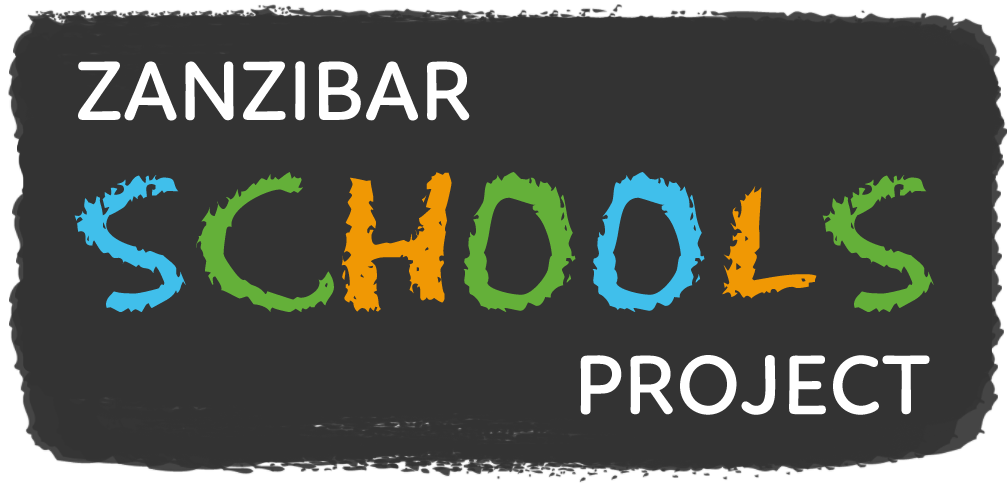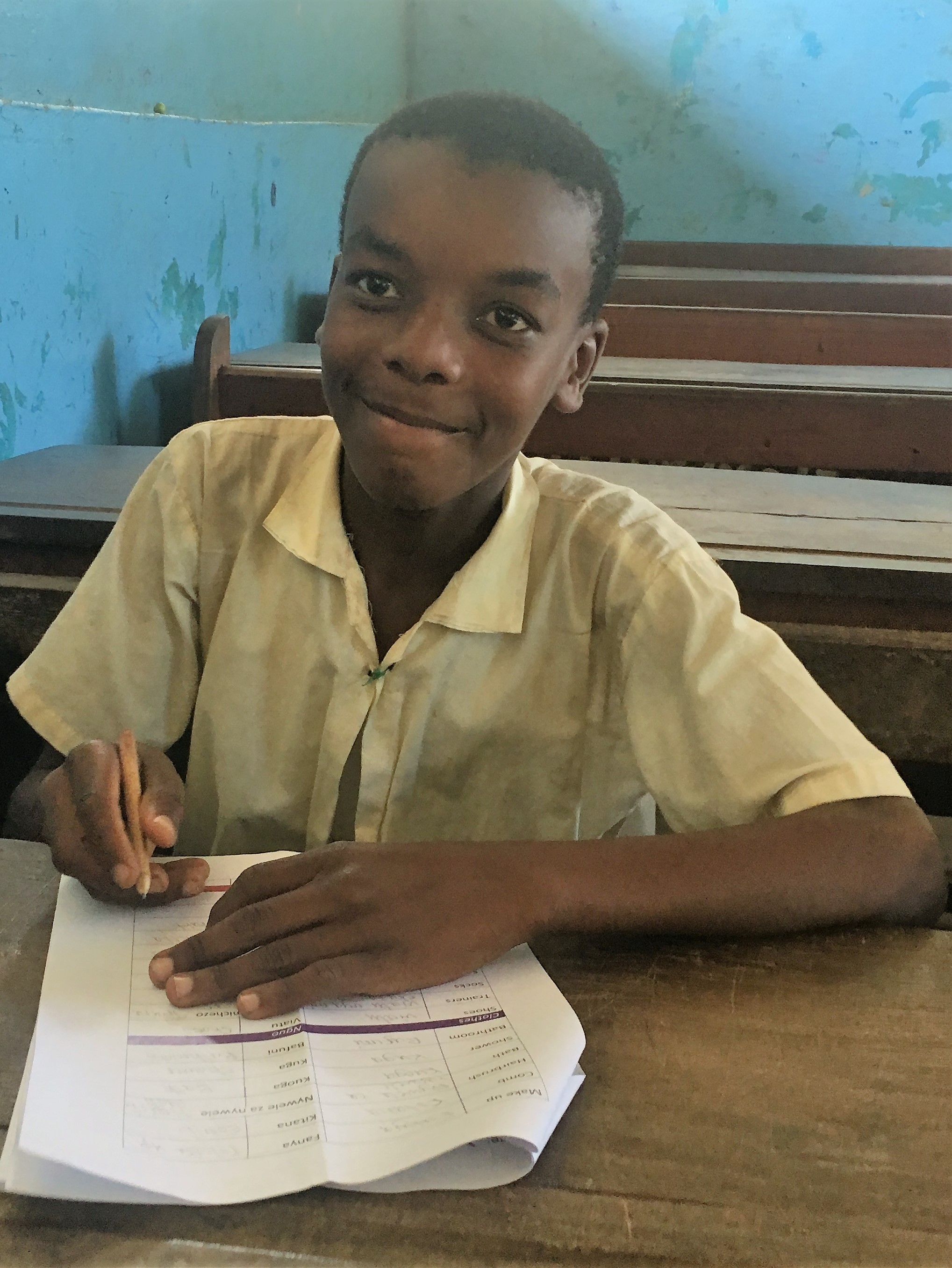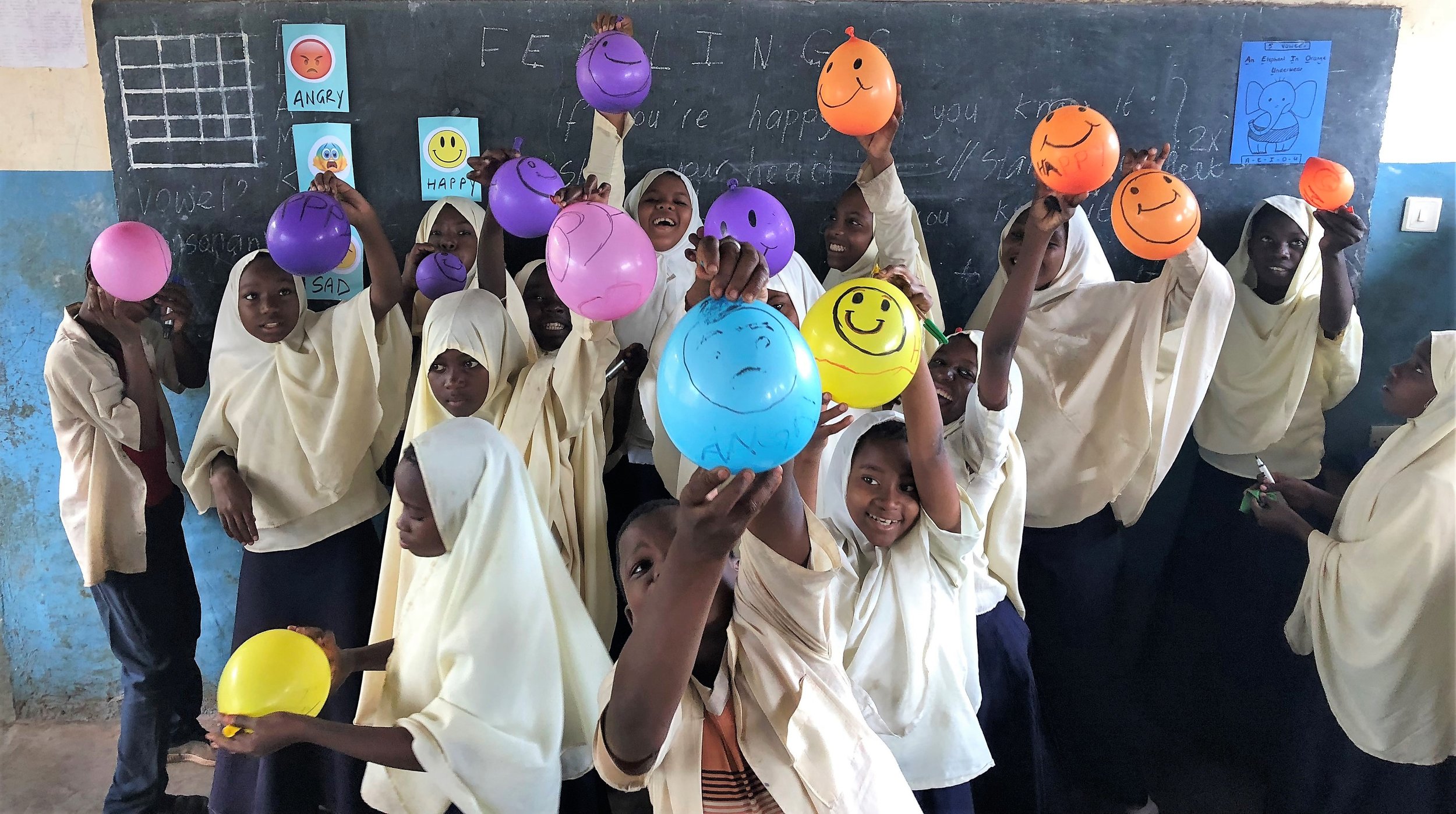I’ve been volunteering with Safari English Club for 4 weeks now and I’ve been teaching Standard 5 for most of that time. Generally there are between 24 and 30 students in the class and the first week I had to work hard to remember all their names, matching them with the appropriate faces. I still make mistakes, but they appreciate it when I do know them by their names.
Every day, Monday to Thursday, I pick up Stina (the other volunteer) in Stone Town and on the way to Unguja Ukuu, Sadiq the local teacher joins us. On our way to school we talk about our lesson plans. Since teaching isn’t my profession, and my Swahili is ‘kidogo’ (very little), teaching at Safari English Club is an adventure every day. I make good use of the TEFL course that I did earlier in the year. I really appreciate the great materials that I was given by some friends, like flashcards, a quartet game covering the alphabet and memory cards with wildlife animals. And the internet is a great source of inspiration. Besides the fact that I’m not a teacher, it’s sometimes hard gauge the students’ level. Sometimes they know more than I expect and the next time they know so much less than I was hoping for… flexibility, patience and a talent for improvisation are the skills required from my side.
Last week we watched “Finding Nemo” spread over two days (after 60 minutes several kids fell asleep) and we discussed the film the next day. Besides listing the animals that we’d seen, we talked about how Nemo’s father felt when Nemo was lost. We practised ‘Happy’, ‘Sad’, ‘Angry’ and ‘Scared’ and what it looks like as an expression on your face. I taught them the song: “If you’re happy and you know it, clap your hands/stamp your feet/turn around etc”.
The kids love to sing and make the hand movements and it was encouraging that they started to make suggestions themselves. We finished the class by blowing up a balloon and drawing one of the faces on it. I wasn’t surprised that most of the students chose a happy face, although I saw an angry and a sad face among them.
From next week onwards I’ll focus on how sentences are built. I want to help them understand the difference between nouns, adjectives, verbs and adverbs. I hope that that will help them to build sentences themselves! It’s quite different compared to how sentences are built in Swahili (they combine a lot in one word, like subject, time and verb) whereas the English uses separate words, so it will be a big challenge for all of us.
On the fourth day of teaching I was given bunches of flowers by two boys in my class, Hamis and Twahir…. my heart melted and I knew: I’m in the right place!






